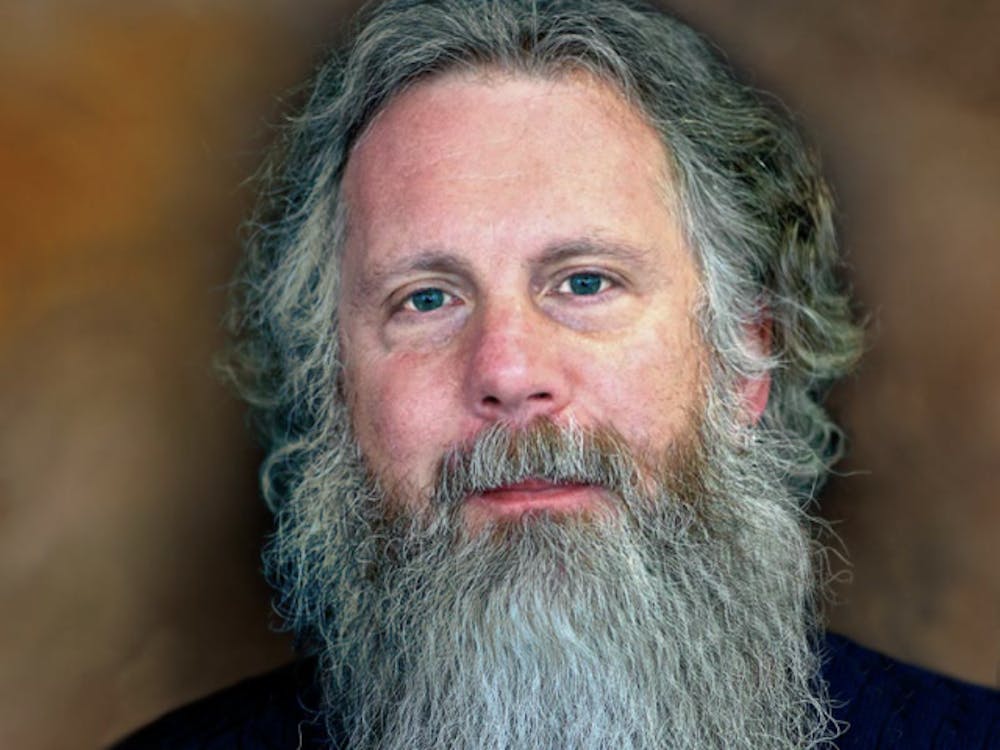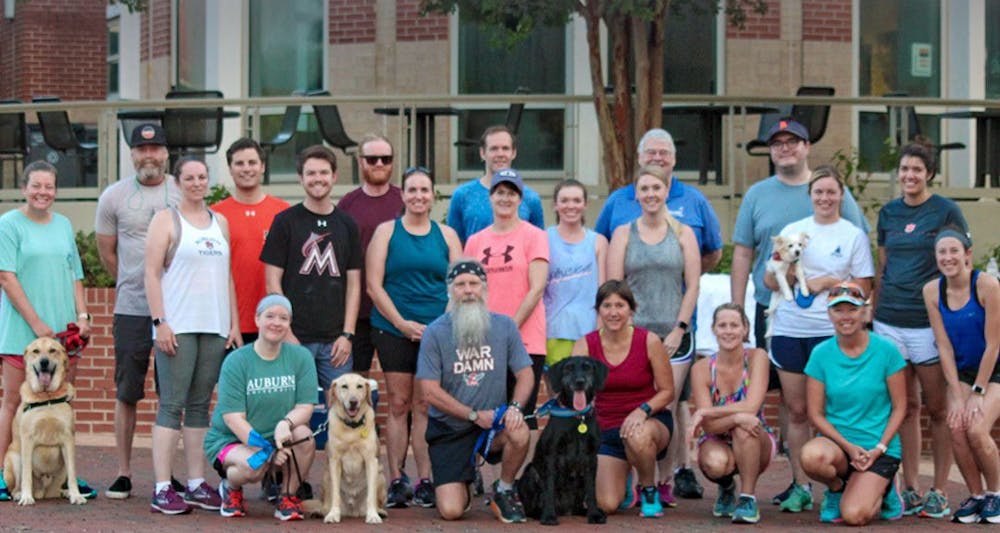Dr. Doug Hankes, director of Auburn’s Student Counseling and Psychological Services, has been at Auburn as a psychologist for over 22 years. With the seven years he spent here for his undergraduate degree and his childhood years, the time he’s lived in Auburn approaches 40.
Hankes has seen a lot in that time and is usually right in his hunches, but when students were sent home after spring break due to concerns about COVID-19, Hankes expected the number of students his department saw to rise. They didn’t.
“When everybody went home during spring break, our numbers declined precipitously,” Hankes said. “All of our clients that we had been working with as we were checking in with them, they’re like, ‘Hey, I’m good. Whatever stress I was under, whatever mental health stuff I was dealing with when I was on campus, I feel better.’”
As the spring semester progressed and transitioned to summer, SCPS’s number of clients slowly increased, and by the time fall semester began, its numbers were back to what they were before spring break, Hankes said. While the office has met with over 900 different students this semester, only around 100 of them said the reason for their visit was related to COVID-19.
“It’s impacting a lot of students,” Hankes said. “I actually thought, in terms of our numbers that are showing up at the counseling center, it would be more. It’s not been insignificant, but … some mental health issues are impacted more by this isolation.”
According to Hankes, the groups of students he’s most concerned for are freshmen, transfer students and graduate students, as they don’t have established social networks like other students on campus. Each student deals with their circumstances differently.
“If you’re socially anxious, or you don’t like getting out of bed to go to class, some people are loving this,” Hankes said. “It’s starting to wear on some of them, but also I think it depends on how big of a social need [one has]. We’re all social animals to an extent — some of us just need more than others.”
While Hankes and the SCPS would ideally meet with students in person, COVID-19 restrictions have forced them to transition to a completely virtual format with unknown long-term effects.
“It’s all tele-counseling, so we don’t know what the impact of that is,” Hankes said. “A lot of our clients are wanting to do in-person, face-to-face, and we just can’t socially distance in these small offices. So you wonder how many of them are just not wanting to do Zoom stuff anymore.”
Back when he was a student here at Auburn, Hankes said no one wanted to talk about mental health issues. As a young student trying to create a college experience separate from his home a few miles down the road, Hankes admits he wouldn’t have been able to ask for help as an undergraduate.
“It is hard to reach out for help; it just is,” Hankes said. “As an undergraduate, could I have benefitted from talking with somebody? Absolutely.”
After seven years of studying, Hankes graduated with a bachelor’s degree in physical education, stumbling into the field of sports psychology. That field blended two things together he loved, and he headed to the University of Texas to get a master’s in sports psychology in the kinesiology department.
“Then, [I] randomly got accepted to a doctoral program in counseling psychology, so I made the switch from kinesiology to psychology,” Hankes said. “That was, again, accidental, and the best thing that ever happened to me.”
Hankes’ original plan when getting his degree in kinesiology was to help athletes perform better, but his psychology degree allowed him to work with the entire athlete. Instead of having to focus solely on the sports side of the athlete’s life, Hankes was able to look at everything that affected them: relationship issues, substance abuse issues and depression, to name a few. Helping those issues was key to helping their performance in their sport.
After getting his doctorate in counseling psychology, Hankes worked at the University of Tennessee for a few years until, he said, one memorable encounter with the director of the counseling center at Auburn in a hot tub at a conference, drinking beer.
“Seriously, [I was] at a conference I didn’t want to be at, and he said, ‘I’ve got a position open; you’ve [got to] come down and interview,’” Hankes said. “I said, ‘Well, I’m pretty happy with my position. I wouldn’t normally ask this quickly, but what’s the salary?’ He told me, and I said, ‘Oh, hell no.’”
Eventually, however, the director talked Hankes into coming down for an interview, saying since Hankes was from Auburn, he could spend some time with his family, too. Unfortunately, the interview didn’t go as planned.
“I felt so bad for the people in the counseling center about halfway through the interview I was just telling anybody who would listen that, as an alum, I was just embarrassed at what we were providing for Auburn University students.” Hankes said.
Unbeknownst to him, however, Hankes’ wife, who he met at Auburn, had also applied for a position in Auburn’s alumni department. She was offered a position immediately, while Hankes had to wait a little longer for his position.
“I had already shot my mouth off … after that, they didn’t offer me a position until around five months after I’d interviewed, because I’d been so blunt and direct,” Hankes said.

Dr. Doug Hankes has been a psychologist at Auburn for over 22 years.
After 22 years, Hankes is now the director of Auburn’s Student Counseling and Psychological Services. While they’ve grown from around five employees when he started to 20, Hankes said there is still progress to be made.
“We’re still undersized,” Hankes said. “We’re still a small counseling center for 30,000 students, but we’ve come a long way compared to where we started. We’ve done a lot to destigmatize it.”
Hankes likens his day-to-day job as director to an air traffic controller, directing people around. Trying to route all of the calls and emails he receives from people across campus to the where they need to be takes up a large portion of his time, and Hankes tries to fit in clinical work as well.
“I probably still see 10–15 individual clients a week — that’s a pretty heavy load for a director — but I love doing the clinical work and I’m pretty good at it, too,” Hankes said with a laugh. “After 25 years of doing this, I can say, ‘Yeah, I’m pretty good at this.’”
The fact Hankes loves what he does is key, he said. Psychologists can make much more money outside of college counseling work, so the reason Hankes and his colleagues get into their line of work is because they like to do the clinical work and the therapy and counseling.
One way Hankes stays engaged with his community is through his yearly runs around campus with the parents of children in Camp War Eagle. When asked about it, Hankes could only laugh.
“That’s going to be my legacy,” Hankes said. “That’s what I’m going to be remembered for.”
The parent run was born in May 1998, when Hankes asked Mike Armstrong, director of Camp War Eagle, if he could lead the parents on a running tour around campus. Camp War Eagle had barely been around for a year, according to Hankes, and his proposal was met with disbelief.
“So I set up this small table at Camp War Eagle registration … and my wife created this little Aubie stand,” Hankes said. “As parents came by, ‘Hey, we’re going to be doing a three-mile running tour of campus. At [6 a.m.] we’re going to meet down in the lobby.’”
Hankes would lead the group of parents at a set pace, and he would talk and answer questions as they ran around campus. Over 22 years, Hankes has led over 200 of these runs.
“A couple of times, I’ve only had like three people show up, and there’s been times when as many as 50 parents have showed up,” Hankes said. “I never get tired of talking about the run. I’m always trying to get people to do it.”
When he’s not directing traffic at his job or going on runs with parents, Hankes can be found hiking the Appalachian Trail.
He encourages students to take advantage of the resources they have.
“This is the easiest time, in most people’s lives, that they’re going to be able to access mental health services, as a college student,” Hankes said. “We’ve done everything possible to create as few barriers as we can … there’s no reason not to reach out if you’re struggling.”
Do you like this story? The Plainsman doesn't accept money from tuition or student fees, and we don't charge a subscription fee. But you can donate to support The Plainsman.





